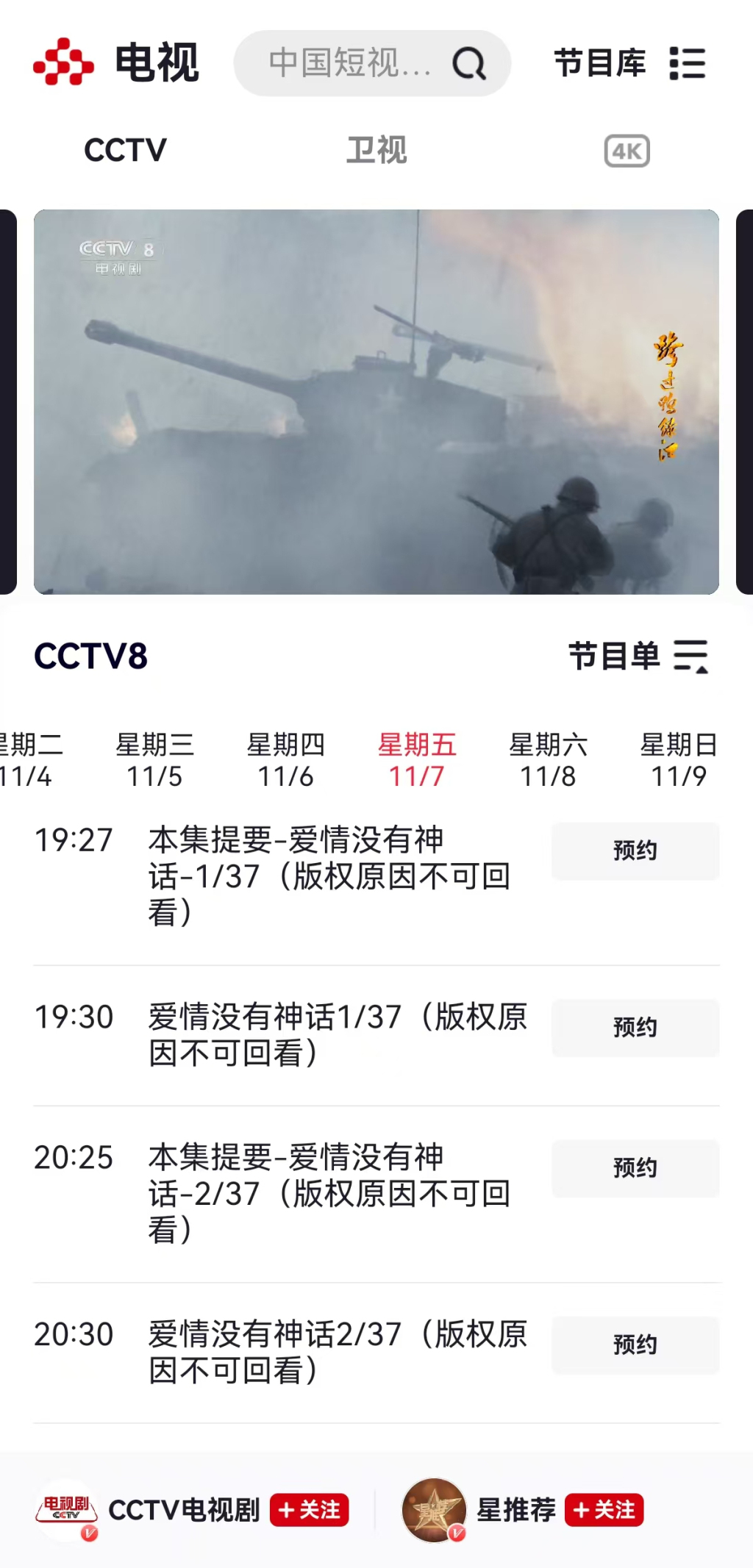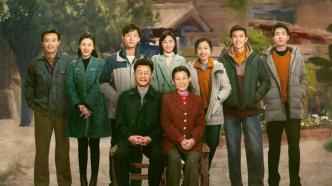
Written by Zhao Dongling, directed by Kang Honglei, directed by Liu Hanxuan, and starring Zhang Wanyi, Guo Tao, and Liu Lin, "Glory of the Fathers" is a work with the main theme of interpreting ecological civilization through forestry changes. Audiences don't have to worry about such a major theme being blunt, because "Glory of the Fathers" tells the story in a very soft, soft, and audience-friendly way. It has the framework of a period drama, which is common in period dramas. "Public Epic". We can completely regard "Glory of the Fathers" as a drama series about the 30-year changes of an ordinary family in a forest farm in Northeast China.

"Glory of Fathers" focuses on the changes of a big family.
From last year's blockbuster "The World", to CCTV's "Our Days" with the highest ratings so far this year, to "Glory of Our Fathers", Northeast China has always been a fertile ground for period drama creation. One reason is that the core feature of period dramas is the ups and downs of individual/family fate under the ups and downs of the years, which constitutes the main source of drama in period dramas. Since the founding of New China, the experience of the land in Northeast China is even more legendary. The Northeast used to be the "Eldest Son of the Republic" and "Big Brother of the Republic" full of glory, but with the advancement of the market economy in the 1990s and the vigorous reform of state-owned enterprises, the Northeast suffered a sudden impact. The "lay-off tide" around the new century has profoundly affected For thousands of Northeastern families, a grain of sand in the times may become a mountain on the head of ordinary people. There are too many stories to tell behind this.
"Glory of the Fathers" began in 1997. The forestry industry was facing production cuts and cutting restrictions. Originally, the lumberjacks who were "national workers" and held iron rice bowls were either "suspended without pay" or bought out of service. A way to make a living. In the play, the 923 work team of Sandaogou Forest Farm in Daxinganling also faces the problem of being laid off. For the lumberjacks who have been working diligently and taking pride in their status as workers, if they can't cut wood, "then it won't be waste"... This is a great change of the times that caught them off guard and panicked.
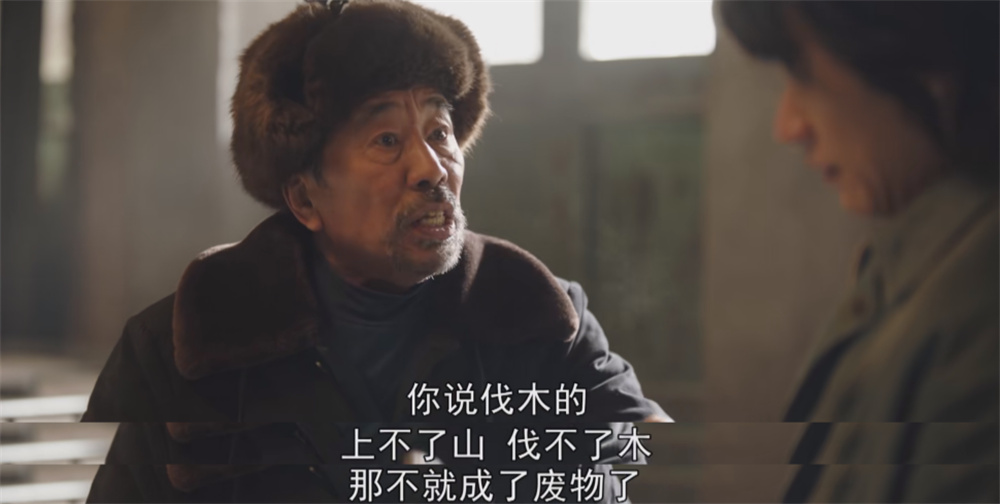
It is difficult for the older generation to accept layoffs
Gu Changshan (played by Guo Tao), the captain of the work team, worked hard to keep his workers' jobs, but he was powerless in the face of the rigid layoff target. 1997 was a very difficult year for the Gu family. He encountered the cold eyes of some workers; his eldest son Gu Zhaocheng (played by Li Le) had a broken dream of being a soldier; he adopted Chen Xingjie (played by Zhang Wanyi) and Liang Fengqin, the daughter of another worker who was born outside the family planning. In 1998, he adopted Liu Ziqiang, the son of a fugitive coworker, and his youngest son Gu Zhaoxi stepped on a bear trap and stabbed one eye...
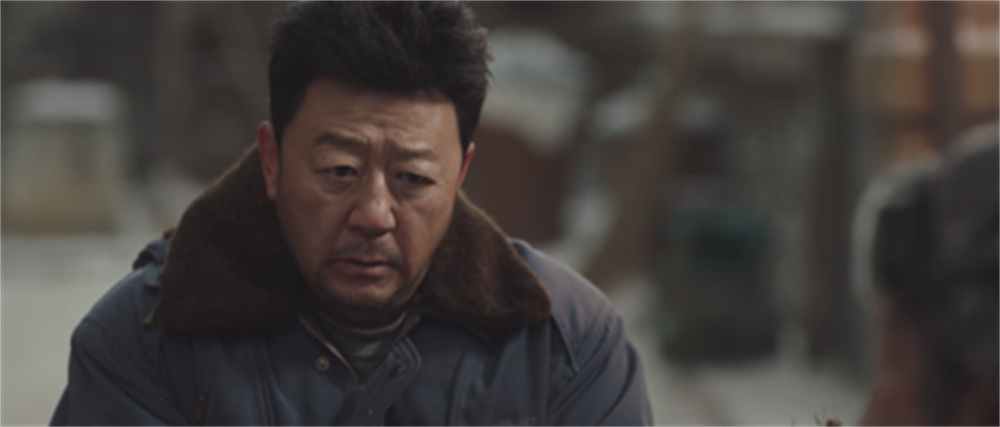
Gu Changshan (played by Guo Tao)
With their income increasingly stretched, Gu Changshan and his wife Na Cunhua (played by Liu Lin) had to support an elderly man and five children, and had to deal with ensuing accidents.
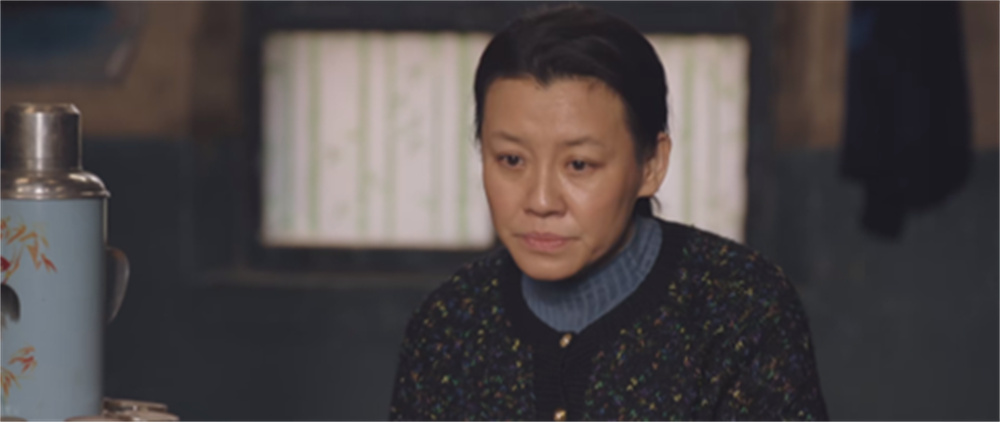
Na Cunhua (played by Liu Lin)
Every adopted child has its own misfortunes. The protagonist of the series, Chen Xingjie, is the third-generation child of the forest farm. In 1997, his life encountered the most difficult moment: his father, Chen Shangyou, died unexpectedly while logging, and his heartbroken mother decided to leave the forest farm and go south to make a living, and was preparing to sprint After taking the college entrance examination, he suddenly became a "left-behind child"... Chen Xingjie caught up with the "three broken and one bitter" in the bitter drama, broken family, broken emotions, broken characters, and all kinds of unexpected sufferings.
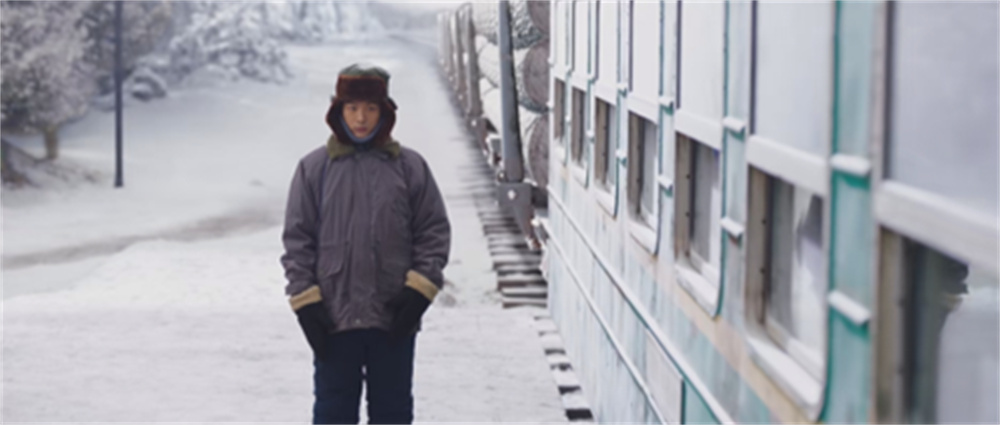
Chen Xingjie (played by Zhang Wanyi)
Liang Fengqin obviously has a mother and a stepdad, but the stepdad is worried that the appearance of his stepdaughter will cause him to be laid off at a sensitive point, so Liang Fengqin cannot recognize his parents and cannot return to his family; Liu Ziqiang and his father depend on each other for life, but his father He was actually a wanted criminal carrying human life. After his father was arrested, he also lost his home...
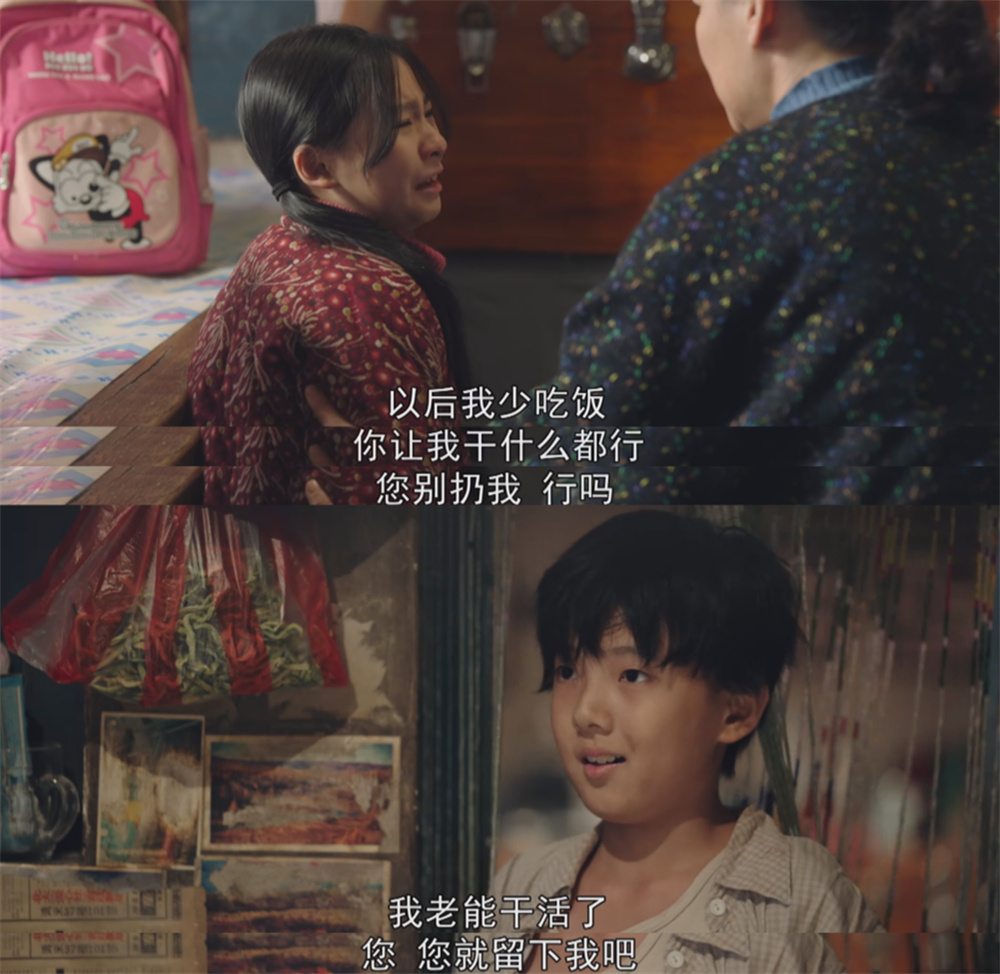
Liang Fengqin and Liu Ziqiang are both so sensible that it makes people feel distressed.
Period dramas often have an ill-fated beginning with many twists and turns, and various accidents and sufferings befall the protagonist one after another... This makes period dramas inevitably contain some elements of "bitter drama".
Appropriate bitterness, audiences love to watch, not only because the dramatic conflicts of bitterness dramas are really fascinating, but also because the bitterness of period dramas is not a pile of dog-blood bridges, but real scars left by the wheels of the times. What's more critical is that "demonstrating morality and responsibility in the fireworks of the world, expressing feelings and aspirations in the joys and sorrows", bitterness "in the fireworks in the world", "in the joys and sorrows", bitterness is the tenacity, kindness, unyielding, Developers of beautiful qualities such as tenacity, which together form the background of the civilian epic.
Therefore, the focus of period dramas is not on bitterness or tragedy, but on the protagonist's overcoming of bitterness. "The Glory of Our Fathers" contains not only bitterness, but also morality and responsibility, feelings and aspirations.
For example, the series constructs a positive and optimistic attitude towards life. "Glory of Our Fathers" has the "innate" comedy color of Northeastern-themed works, which is more reflected from the perspective of children. Children who are ignorant of the world are less sensitive to the impact of the turning point of the times. Their innocence, brilliance, and heartlessness also make the sighs of adults less heavy.
The drama also builds the warmth in the humane society. In that collectivist society where everyone works in the same place, lives in the same area, and bathes in the same bathhouse, although there is no such clear sense of boundaries between people, there is always warmth flowing - people help each other. , take care of each other and tide over difficulties together. For example, when he was laid off, many workers complained about Gu Changshan, but when Gu Zhaoxi suffered an eye injury and needed to pay for expensive surgery, workers came to give money to him one after another; another example was when Chen Xingjie was admitted to college, Gu Changshan's family, and even the entire forest farm celebrated grandly... …
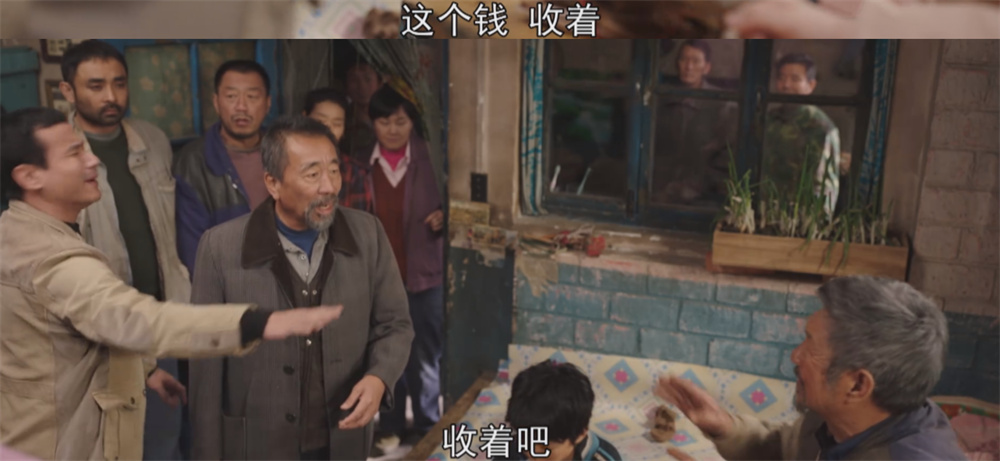
A difficult one, P Plus support
No matter how the new generation of young viewers view collectivist life in a human society, it has gradually gone away; in an era that emphasizes individuality but also creates too much loneliness, the warmth in period dramas may make some viewers sentimental. Miss you.
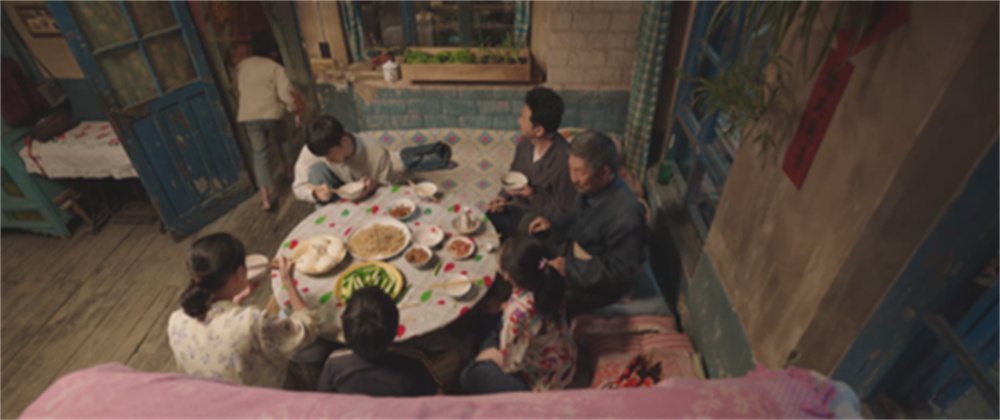
The warmth of a happy family
"The Glory of Our Fathers" even constructs an ideal personality that is true, good and beautiful. This is especially evident in Gu Changshan and Na Cunhua. Gu Changshan is honest, honest, kind-hearted, and upright. He has adopted three children. He can put himself in others' shoes. He loves his children and cherishes his wife. He is the backbone of the family but does not have the annoying "dadiness"...
Period dramas often feature a mother who embodies traditional Chinese virtues, and "Glory of Our Fathers" has that mother. She is simple and kind, hard-working, and has a soft heart... Liu Lin gave Na Cunhua a different temperament, making her seem less gentle. She sometimes complained about her husband's being too kind, and she was also anxious. Angry, but in fact she is the same type of person as Gu Changshan, loyal and tender at heart, so she is always hard-spoken and soft-hearted, silently supporting her husband's kind decisions, and supporting the family together with her husband...
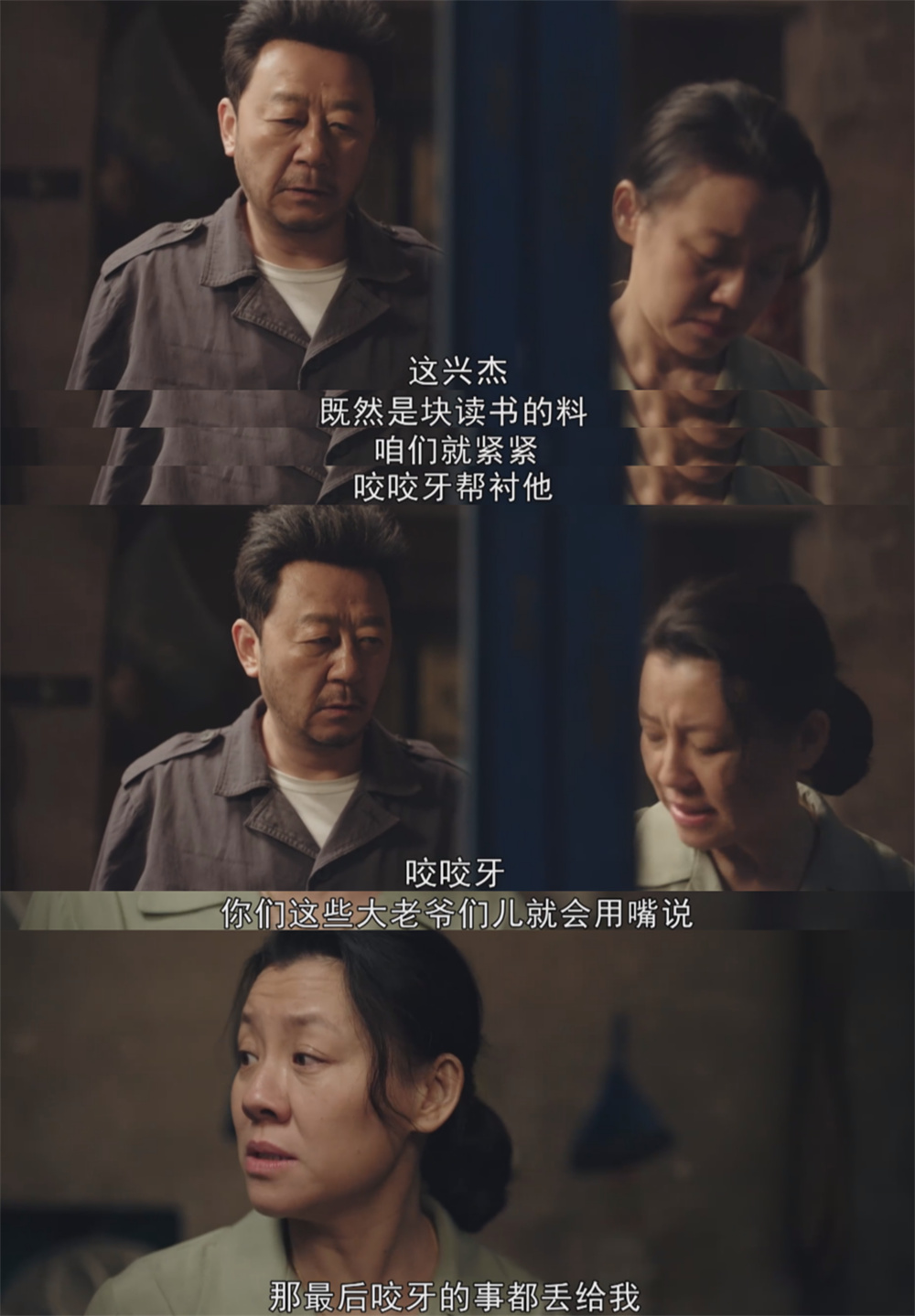
Na Hua also always supports her husband's kind decisions.
Audiences love to watch period dramas, and what they essentially love to watch is how our parents survived those difficult and difficult years. Yes, the key is to "get through the years" - no matter how hard it is, get through it.
Writer Chi Li has a wonderful description of this psychology, "The past was not as we wished. We once suffered from hunger, discrimination, bullying, unlucky, unpopular teachers, unappreciated talents, and no place to stand. However, the story has twists and turns, and the situation gradually Change. Just like American blockbusters, we always win the final victory. Every time misfortune becomes an opportunity for success. Those who bully us are finally eliminated by history. The result of hunger makes us learn to love food. The facts are not false at all, you You are the winner. Now, you are sitting vividly at the end of the past, and as the master of your own history, you are vividly telling the story."... Period drama is exactly like this: Today, we are sitting vividly at the end of the past, vividly telling the past. difficult times. This is the greatest charm of period dramas.
In times of uncertainty and anxiety, we need this kind of telling. Period dramas can always form a reflection on today's life, because each generation of viewers has their own dilemmas of the times, and they also all have the "grain of sand of the times" they are encountering. The experience of the parents may be a source of comfort and strength—the parents have survived, and so can we!
As a result, period dramas have become a good carrier of the main theme, which can combine and contrast the fate of the individual/family with the fate of the era/nation, and play a cohesive role. "Glory of Our Fathers" fits the theme of "forest protection". Behind the changes in Gu Changshan's situation over the past 30 years is the continuous and in-depth advancement of national ecological construction; and Chen Xingjie's experience of leaving the forest farm and returning to the forest farm reflects the younger generation Inheriting the glory of their fathers, they return with a brand-new concept of ecological civilization to build a better hometown...
Audiences love to watch this kind of period drama based on civilian life, and the market will respond to it. Therefore, in the past two or three years, period drama creation has become more and more lively. Period dramas have also formed certain templates, such as the beginning of bitterness, the true, kind and beautiful personality, the twists and turns of accidents and conflicts... For a senior screenwriter like Zhao Dongling, the challenge of operating a smooth and standard script is not too big. . What's more, with director Kang Honglei in charge, the series does show a good texture, with both regional and contemporary colors.
It's just that, if period dramas want to be more moving and out of the circle, they must need something beyond the standard. It can unintentionally reveal the "rift of the times", the lingering shadow left by the times on individuals, the scars that cannot be healed, or the struggle of human nature under some correct adjectives, allowing the characters to have some more real "rough edges" ".
"Glory of the Fathers" also has such "raw edges". The little character who makes people feel particularly vivid in the play is Ma Xiaoyun (played by Ge Shanshan) in the forest farm. She is bright and sharp, has a hot temper, and has her own little calculations - for example, she is afraid that the superborn daughter who comes to her door will affect her husband's work in the forest farm, so she asks Gu Changshan to help raise her daughter; she feels sorry for her, and she keeps sending things to Gu's family.
She is not cruel. After putting her daughter up for adoption, she breathed a sigh of relief, but when she was walking home, she fell hard, which vividly reflected her depression and helplessness.

Ma Xiaoyun (Ge Shanshan)
After her husband was placed on the list of people who were suspended without pay, she originally angrily went to Gu Changshan to ask for an explanation, but as soon as she entered his house, she said politely, "Sister-in-law Cunhua, you are busy. If you have nothing to do, come and sit down at your house." Son". Seeing that her daughter was enjoying herself with the children of the Gu family, but she was wary of herself, she left angrily.
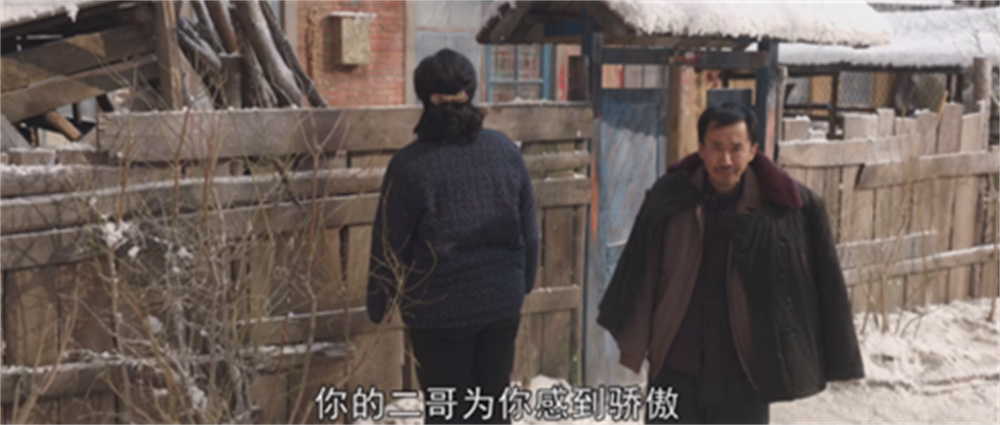
My daughter's heart is already in someone else's house
Later, she wanted to take her daughter home to raise her, but her daughter only rejected and feared her. She both blamed herself and felt wronged...
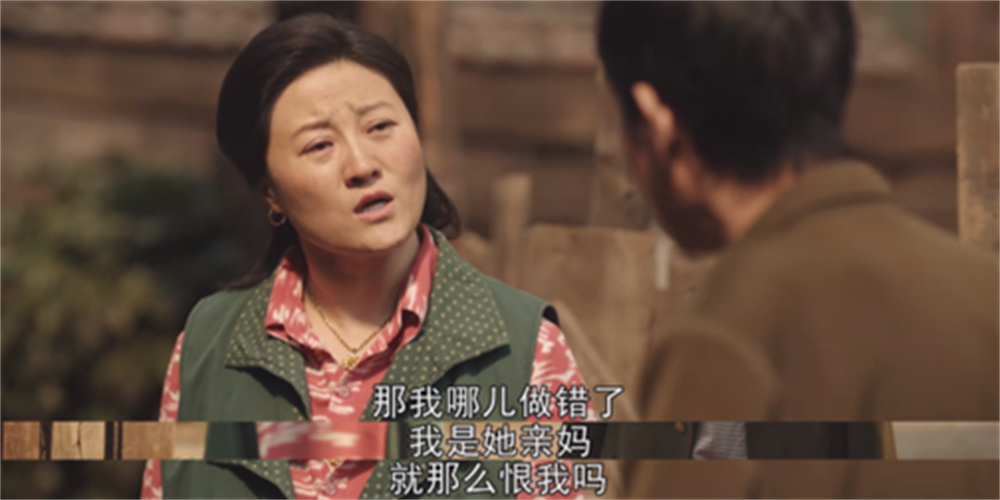
The screenwriter did not want to portray Ma Xiaoyun as a "saint", so when writing this character, he gave her more free words, such as a wrestling, a helpless look back, and a jealous praise. This kind of leisurely writing makes the characters vivid and real, and the psychological distance with ordinary audiences is also closer-in any era, such people are the mainstream.
There are flaws, but I try my best to be a good person, and I try to overcome the difficulties of the times, but I can't help but leave regrets. To write about the time life of such little people is also to write about ordinary us.


